
Publisher:
Bonnie King
CONTACT:
Newsroom@Salem-news.com
Advertising:
Adsales@Salem-news.com

~Truth~
~Justice~
~Peace~
TJP
Dec-02-2011 16:46

 TweetFollow @OregonNews
TweetFollow @OregonNews
Rwanda: A sick nation in need of healing
Jennifer Fierberg, MSW Salem-News.comRwanda is a small nation at the heart of a huge continent, neither of which makes the mainstream media as often as they should for the challenges they endure on a daily basis.
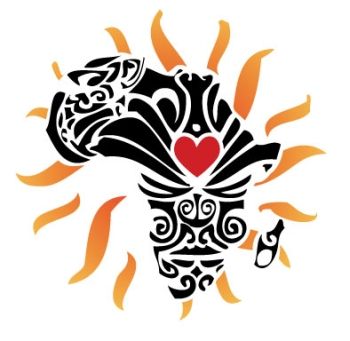 |
(WASHINGTON D.C.) - On November 28, 2011 the first annual roundtable on Rwanda Truth and Reconciliation: The Process Begins was held at The International Humanitarian law Institute of Minnesota.
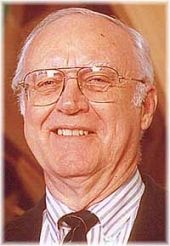 Robert Flaten, former U.S. |
In attendance was Dr. Ali Galayd, the Former Prime Minister of Somalia, Paul Rusesabagina, honored worldwide for his heroic actions during the 1994 Rwandan Genocide, recipient of the 2005 U.S. Presidential Medal of Freedom and the 2011 Lantos Human Rights Prize.
Also in attendance was Robert Flaten, former U.S. Ambassador to Rwanda from 1990-1993, who was witness to the events leading up to the Rwandan and Burundi Genocides, as well as the director of State Department Offices of India, Pakistan, Afghanistan and is currently a lecturer on foreign policy at St. Olaf College.
Professor Peter Erlinder was also a key member of this roundtable discussion due to his experience with the William Mitchel College of Law, the UN-ICTR Lead Defense Counsel, ICTR Defense Lawyers Association (ADAD) President; Director, International Humanitarian Law Institute and former Rwandan Political Prisoner.
 |

Finally, rounding out the panel was the distinguished Dr. Theogene Rudasingwa, who was a former high-ranking member of the current RPF/Kagame government, now in political asylum in the U.S., and intern coordinator for the Rwandan National Congress (RNC).
The purpose of this roundtable discussion was to open the dialogue of truth and reconciliation in Rwanda; as Dr. Rudasingwa stated in his remarks, “truth is the only way reconciliation is possible.”
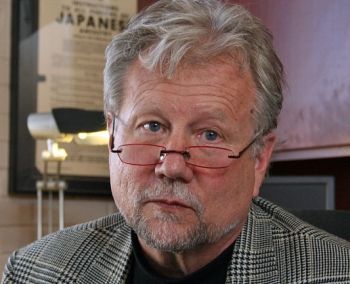 Law professor Peter Erlinder, shown in this 2009 file |
Professor Peter Erlinder opened the discussion by stating that the process of truth and reconciliation in Rwanda has not been possible because knowing the truth has not been available.
The documents providing a day by day and hour by hour accoungint of the 1994 Rwandan Genocide have been suppressed by the UN, the horrific events of what happened in Rwanda have been distorted in the U.S. because of their own self-interests in Rwanda. ( These documents can be found at www.rwandadocument.net)
Professor Erlinder stated that a turn of events needs to start with Rwanda and central Africa because of the past and current violence Congo is also related to the assassination of President Juvenal Habyarimana and the politics that go along with that including the invasion of Somalia going on to today by the armed forces of Burundi and Uganda.
Ambassador Flaten spoke of his personal witness to the violence leading up to the 1994 genocide and of his dialogue with the late President Habyarimana to bring democracy where it has never been before. He stated that he worked in Rwanda for over three years and that everyone felt that power-sharing could happen.
This power sharing agreement was even signed into agreement in Arusha, Tanzania in 1993.
This active dialogue on democracy occurred but then collapsed with the assassination of the late President Habyarimana.
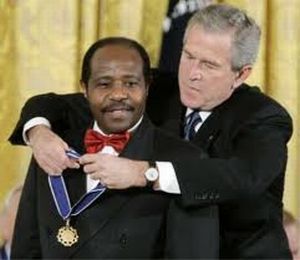 Paul Rusesabagina of 'Hotel Rwanda' |
On the topic of reconciliation, Ambassador Flaten stated that it is a tougher road to travel now but the dialogue has started and needs to continue.
Ambassador Flaten closed with stating he was most impressed with the fact that despite the differences between Hutu, Tutsi and Twa they all held strong to the concept that being Rwandan was most important.
Due to personal time constraints, Paul Rusesabagina spoke briefly about four specific issues that he felt needed to be addressed under the topic of peace and reconciliation.
Of the four main issues, the first issue began with the human rights abuses before, during and after the genocide, secondly, that justice has been a one-way street, with the continued oppression of free speech and the free press while noting that people are not allowed to speak their minds and tell what they feel, and finally, the lack of open political space which hinders further development in Rwanda. He stated that these issues, if not addressed, are akin to building a house on sand and not on a rock, and that any change without truth cannot last.
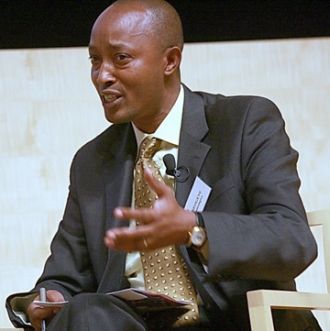 Dr. Theogene Rudasingwa |
Dr. Theogene Rudasingwa began his talk with the extensive history of Rwanda and colonialism and the effects it has on Rwanda as a nation. He shared how he grew up as a refugee in Uganda for three decades until he took up arms in 1990 in order to return to Rwanda.
As a rebel soldier, he stated that capturing state power came at an expensive price, and the price paid was the death of approximately 1,000,000 people in Rwanda and in the Congo.
The 1994 Genocide was a genocide of the Tutsi population that had been supported by the Pentagon and widely ignored by the international community.
The US, like Rwanda, is also marred by the stains of war, slavery and international relations that are both good and bad, but, the change in power in Rwanda from Tutsi to Hutu and vice- versa is a winner take all situation, and the losers live as second class citizens until they regain power.
Alternatively, he believes that the primary goal of Rwanda is that all citizens are equal before the law and that all citizens will have equal justice in the future.
As a founding member of the RNC, Dr. Rudasingwa and others have been traveling the United States, Canada and Europe where he stated that he has consistently faced questions about what really happened to the late President Habyarimana, which has led him to publish the long internal journey of disclosing his answers to this question.
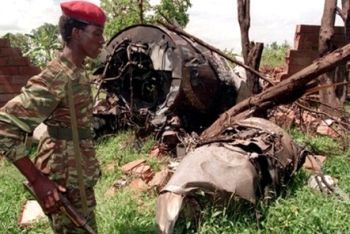 |
On October 1, 2011 he published “A Confession” (http://www.salem-news.com/
He stated that he has faced much praise and scrutiny for sharing this information, but, as he stated in the roundtable discussion, “no healing can come to a nation mired in lies.”
Dr. Rudasingwa shared this information in order to begin the healing process in Rwanda, but also for the importance of truth telling and to release a personal burden in his own life. Truth telling is a fundamental part of the RNC in their pursuit of peace and reconciliation in Rwanda.
He stated that the RNC travels and talks with Rwandans in diasporas in order to see if Rwandans; Hutu, Tutsi and Twa can begin to talk with each other across ethnic divides.
Dr. Rudasingwa stated that in these meetings, President Paul Kagame sends his people and pays for their airplane tickets, hotels and all accommodations in order to disrupt his speeches.
 |
He also stated that, “Rwanda has a close-minded government script that they all speak from in these sessions and then subsequently report back to President Kagame.” But this will not stop the work of the RNC. He specified that, “Truth can be used as a tool of peace.”
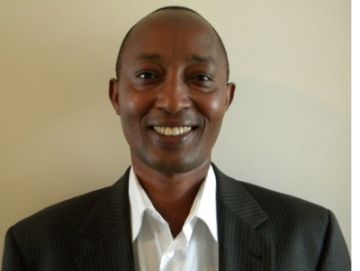 Dr. Rudasingwa, formerly of President Kagame’s |
Dr. Rudasingwa revealed the top few obstacles that he has observed to peace and reconciliation in Rwanda. The first challenge is how Rwanda can imagine a process in which power is obtained peacefully without the continuation of the violent past since 1959. In other words, a change in power via peace and not war, however, democracy is not an easy path for any nation, including the US, and is always a work in progress. While this is a difficult message, Rwandans appear to be interested in the topic.
He further stated that Rwandan government should exist for all the people and not just a specific ethnic group and not just for the rule of one man. No one should die because they vocally disagree with the government, but that is the case in Rwanda today. Saying “I am right and you are wrong” is part and parcel to normal life, but in Rwanda, it is “because I am right and you are wrong, you must die.”
Dr. Rudasingwa shared that while he was in President Kagame’s political inner circle, he ran Rwanda, Inc. This is where a shared script is prepared that all government officials must tell foreigners, with no variation from the script allowed.
Foreign funders rarely venture beyond Kigali, and the impression they leave Rwanda with is, that since the 1994 genocide, the changes in Rwanda have been remarkable.
While the changes in Kigali are obvious, palm trees, paved streets and economic development; the rural areas are still in a state of disarray and in need of much assistance.
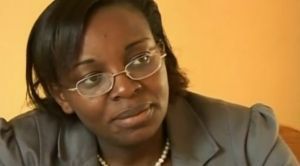 |
Next, Professor Peter Erlinder took to the podium to give his views on this topic of peace and reconciliation in Rwanda. Professor Erlinder spent weeks in the Rwandan prison 1930 when he traveled to Rwanda to defend Victorie Ingabire Umuhoza, who was being held on numerous charges prior the election in August 2010.
He shared that the USAID sent an investigator to Rwanda to see that crimes were being committed by the RPF but a cover-up soon began because it was not known how much the Pentagon was involved in bringing the RPF into power.
A stop-gap was created in order to discontinue the information from being released and the Capital Generation Rate (ICGR) information could not be released. He also stated that the US has spent nearly $3billion to make sure only one side was prosecuted.
When a specific (unnamed) individual presented information to the Pentagon to prosecute President Paul Kagame, she was immediately removed from office and the investigation was squashed.
 |
The genocide documents were taken back to Arlington and Foggy Bottom and without the support of the Pentagon cover-up of their knowledge of the 1994 Rwandan Genocide would be exposed for its invasions of the Congo in 1993 and 1996.
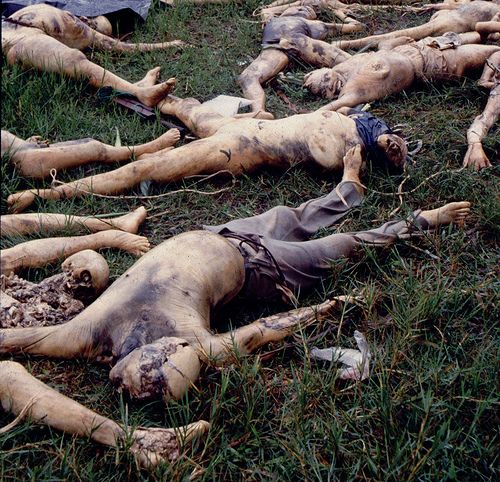 |
Within these documents the US role in the 1994 genocide is also uncovered but never spoken of to the international community. Professor Erlinder stated that these documents must be taken into consideration in order for the truth to be told.
Dr. Ali Galayd began his speech by stating that Dr. Rudasingwa’s confession confirmed the suspicions of many and is a very astounding revelation for east and central Africa. Along with this confession, there are many lessons to be learned in Africa and in the US. Further, he stated that his presence at this roundtable was not designed to categorize or criminalize anyone, because the case is much more complicated than that.
The crux of Dr. Galayd’s message was that the idea of truth telling and reconciliation is essential to Rwanda, but the problems and lack of understanding of the complex history of the region is the key to peace. The problems are not going to be wished away, and what is crucial is the willingness to sit together to talk in reasoned communication and shared power with common political space to the benefit of the entire Great Lakes Region. There will be no victors in this process as long as killings are still ongoing.
People of vision, of courage and of faith need to be welcomed and encouraged. He emphasized that there is an urgent need to aim for higher ground as was accomplished in Italy despite the troubled road ahead.
Dr. Galayd also reported that the role of Ugandan forces in Burundi are complicating the process of truth telling further because of the people being held hostage to the governing powers in these countries. He further stated that Uganda supported the invasion of Somalia, then and now, along with the support of the US and the AU. Dr. Galayd closed by saying that, “all involved should be part of the solution and not the problem.”
Throughout all of the presentations the consistent theme was of the necessity of truth telling leading to the much necessitated process of peace and reconciliation in Rwanda. All of the men who presented have a vested interest in different areas of history, life and culture where it affects the safety and viability of the citizens of Rwanda.
While the topic is not an easy one to tackle, this roundtable discussion opened the dialogue for future discussions and ideas, and for more experts to enter the arena of broaching this subject. Rwanda is a small nation at the heart of a huge continent, neither of which makes the mainstream media as often as they should for the challenges they endure on a daily basis. While ignorance may be bliss to many, it means death when the problem continues to be ignored.
 Jennifer Fierberg is a social worker in the US working on peace and justice issues in Africa with an emphasis on the crisis in Rwanda and throughout the central region of Africa. Her articles have been published on many humanitarian sites that are also focused on changing the world through social, political and personal action.
Jennifer Fierberg is a social worker in the US working on peace and justice issues in Africa with an emphasis on the crisis in Rwanda and throughout the central region of Africa. Her articles have been published on many humanitarian sites that are also focused on changing the world through social, political and personal action.
Jennifer has extensive background working with victims of trauma and domestic violence, justice matters as well as individual and family therapy. Passionate and focused on bringing the many humanitarian issues that plague the African Continent to the awareness of the developed world in order to incite change. She is a correspondent, Assistant Editor, and Volunteer Coordinator for NGO News Africa through the volunteer project of the UN. Jennifer is also the media co-coordinator and senior funding executive for The Africa Global Village (www.africaglobalvillage.com) Jennifer comes to www.Salem-News.com with a great deal of experience and passion for working to stop human right violation in Africa.
Articles for December 1, 2011 | Articles for December 2, 2011 | Articles for December 3, 2011

Quick Links
DINING
Willamette UniversityGoudy Commons Cafe
Dine on the Queen
Willamette Queen Sternwheeler
MUST SEE SALEM
Oregon Capitol ToursCapitol History Gateway
Willamette River Ride
Willamette Queen Sternwheeler
Historic Home Tours:
Deepwood Museum
The Bush House
Gaiety Hollow Garden
AUCTIONS - APPRAISALS
Auction Masters & AppraisalsCONSTRUCTION SERVICES
Roofing and ContractingSheridan, Ore.
ONLINE SHOPPING
Special Occasion DressesAdvertise with Salem-News
Contact:AdSales@Salem-News.com

Salem-News.com:


Terms of Service | Privacy Policy
All comments and messages are approved by people and self promotional links or unacceptable comments are denied.
[Return to Top]
©2026 Salem-News.com. All opinions expressed in this article are those of the author and do not necessarily reflect those of Salem-News.com.